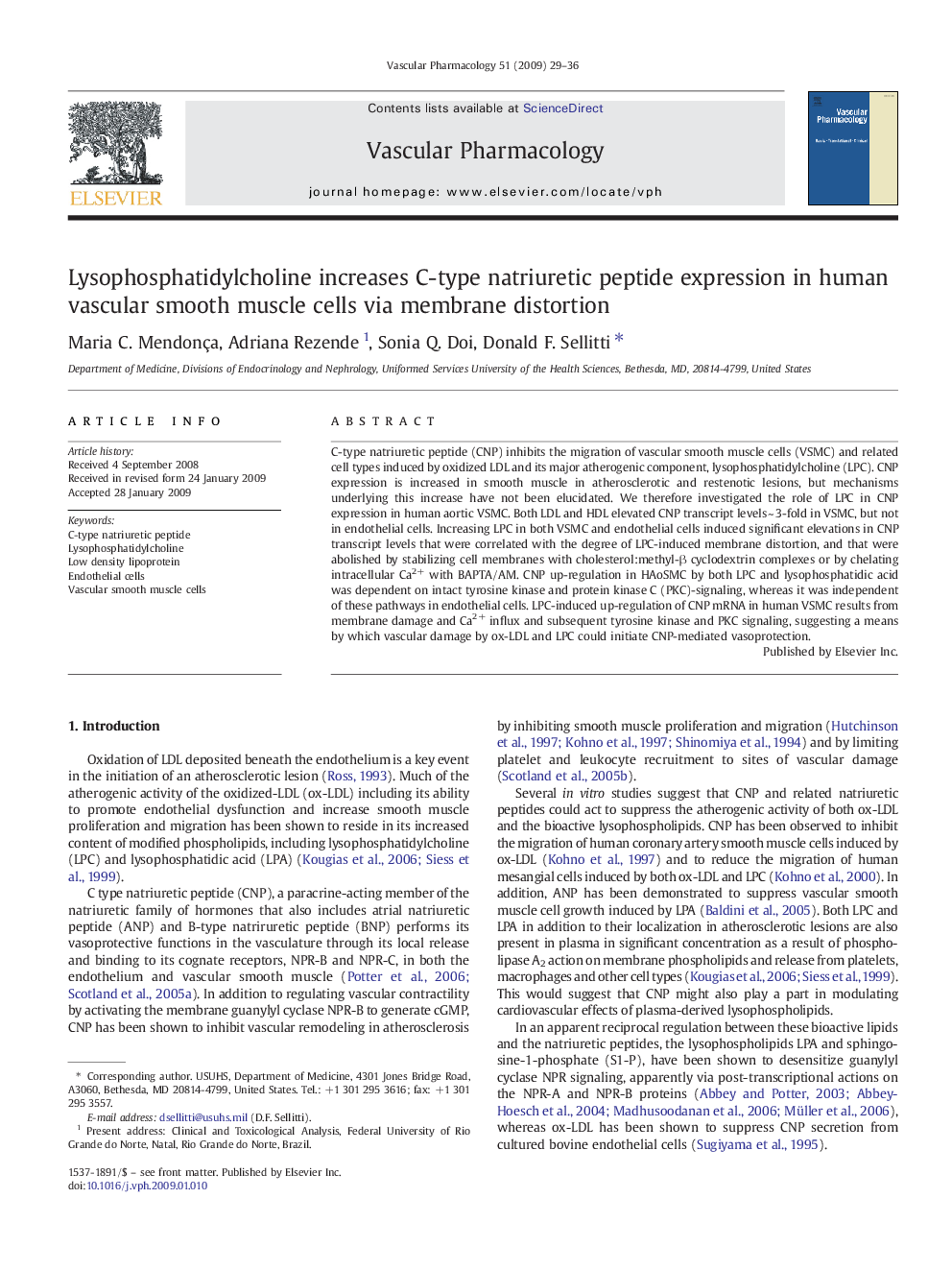| Article ID | Journal | Published Year | Pages | File Type |
|---|---|---|---|---|
| 2574699 | Vascular Pharmacology | 2009 | 8 Pages |
C-type natriuretic peptide (CNP) inhibits the migration of vascular smooth muscle cells (VSMC) and related cell types induced by oxidized LDL and its major atherogenic component, lysophosphatidylcholine (LPC). CNP expression is increased in smooth muscle in atherosclerotic and restenotic lesions, but mechanisms underlying this increase have not been elucidated. We therefore investigated the role of LPC in CNP expression in human aortic VSMC. Both LDL and HDL elevated CNP transcript levels ~ 3-fold in VSMC, but not in endothelial cells. Increasing LPC in both VSMC and endothelial cells induced significant elevations in CNP transcript levels that were correlated with the degree of LPC-induced membrane distortion, and that were abolished by stabilizing cell membranes with cholesterol:methyl-β cyclodextrin complexes or by chelating intracellular Ca2+ with BAPTA/AM. CNP up-regulation in HAoSMC by both LPC and lysophosphatidic acid was dependent on intact tyrosine kinase and protein kinase C (PKC)-signaling, whereas it was independent of these pathways in endothelial cells. LPC-induced up-regulation of CNP mRNA in human VSMC results from membrane damage and Ca2+ influx and subsequent tyrosine kinase and PKC signaling, suggesting a means by which vascular damage by ox-LDL and LPC could initiate CNP-mediated vasoprotection.
